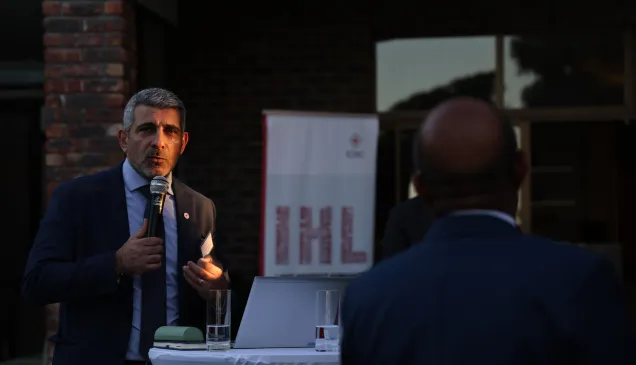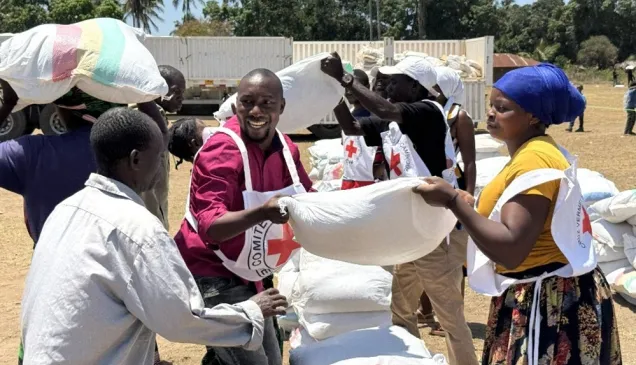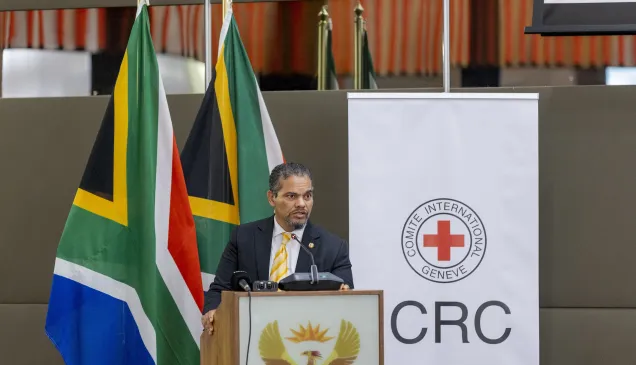Antonio Mongwani looks over the grave of his three-year-old son Fernando who was swept away in the floods that followed Cyclone Idai. He shares with us that he regularly visits the grave situated in his hometown of Dombe to pay his respects.
Antonio lost two other children during the cyclone but to this day, they have not been found.
Cyclone Idai: Families pay their respects to lost loved ones one year on
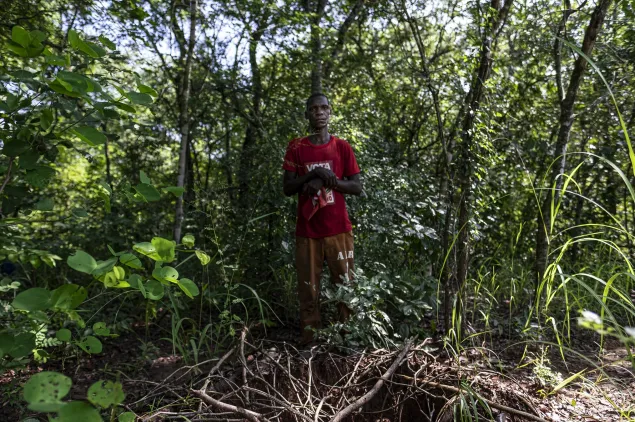
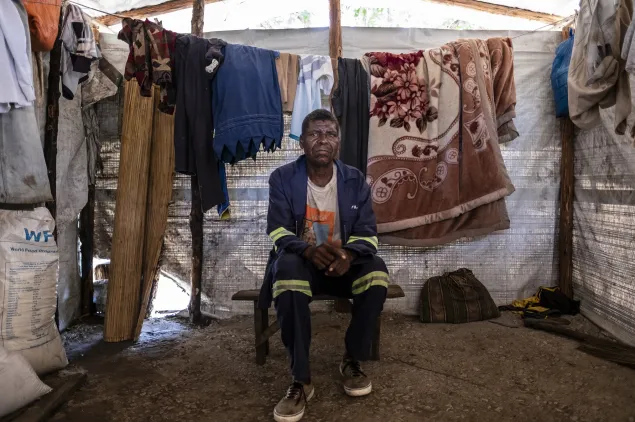
68-year-old Filipe Gove poses for a portrait in his tent in the Bairro de Unidade (The Borough of Unity) which is one of the resettlement camps for the victims of Cyclone Idai.
In the midnight hours of 14 March going into 15 March 2019, he lost his daughter-in-law Lucia (in her 30s), his grandson Mateus (four years old) and his grand-daughter Maria (two years old). He never recovered their bodies.
On top of the tragic family loss, Filipe lost all his belongings. Like the majority of the survivors of the cyclone, his house was washed away as were his crops.
The little he has now he got from relief effort donations. To make ends meet, he now works as a construction worker in the resettlement camp.
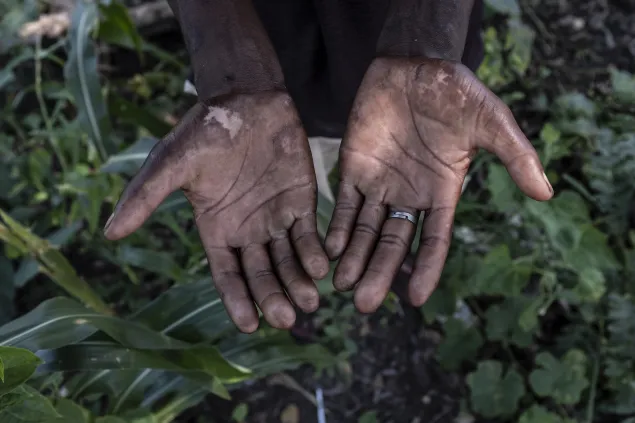
Marcos Meque shows the scars of the wounds he got from climbing and staying on a tree after jumping in the water in an attempt to rescue one of his daughters during Cyclone Idai.
In addition to the psychological wounds caused by the loss of three of his daughters, Marcos has suffered these physical injuries that prevent him from farming and undertaking any kind of manual labor.
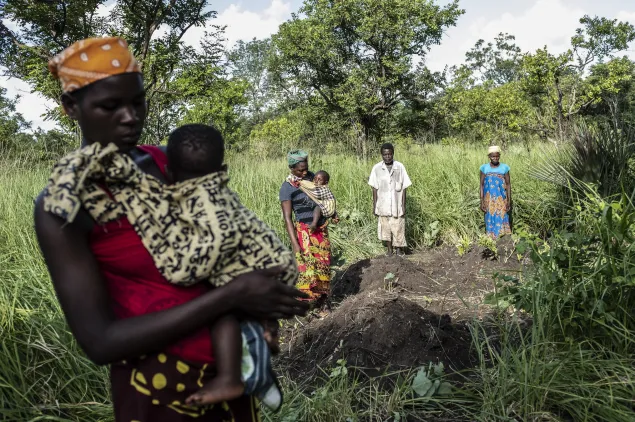
Amelia Joaquim (left), Rozita Samuel (centre left) and Fatima Mequissenne (right) pay their respects at the graves at their loved ones, a few kilometers away from the village of Matarara, in central Mozambique.
Amelia lost her father Mario. Rosita lost three children: Elena who was four, Samuel who was three, and Sarah who was one, as well as her mother who was 52. Her mother and her daughter Elena’s bodies were found and buried on this site, while the bodies of her two other children are still missing.
Fatima lost her 11-year-old daughter Isabel. Amelia, Rozita and Fatima’s deceased loved ones could be found and were given a dignified burial with the ICRC’s support.
While nothing will replace the loss of a child, a parent or a sibling, for these families, knowing where their loved ones are buried and having a place where they can mourn and pay their respects makes a huge difference.
It has been one year since Cyclone Idai struck Mozambique, Zimbabwe and Malawi affecting over three million people across the three southern African countries. Over a thousand people lost their lives as flood waters swept their homes away.
While other disaster response teams provided much needed emergency aid in the form of shelter and food, water and medical intervention, the ICRC’s forensics team had the arduous task of recovering the dead and helping with safe and dignified burials.
In the immediate aftermath, the ICRC distributed shelter kits, blankets and food in coordination with the World Food Programme to meet the most urgent needs. The organization also distributed seeds and agricultural tools to help families replant their crops in order to sustain themselves in the long term. Health centres and prisons affected by the floods were rehabilitated and water supply was restored to communities cut off from access.
The forensics team worked with local authorities to promote best practice on standardized data collection of the missing and dead and supported the Mozambican forensic authorities to draft contingency plans on safe and dignified burials.
One year on, the ICRC accompanied some of the families that lost their relatives as they visited the graves of their loved ones to pay their respects.

